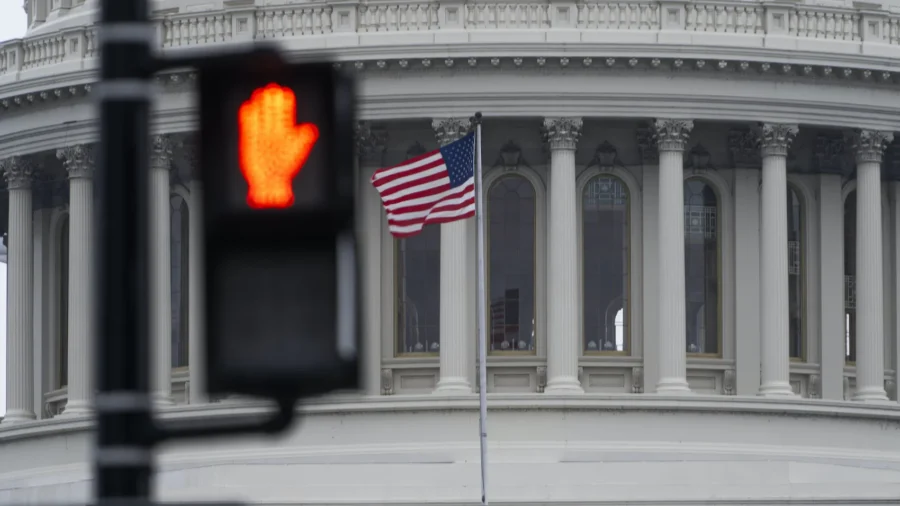Nearly three-quarters of Americans feel the United States isn’t doing too well, with the younger generation believing they are facing a more dangerous world with fewer opportunities to thrive and succeed, according to a recent survey.
The CBS News YouGov survey interviewed 2,460 U.S. adults between June 17-21 and primarily inquired about their perception of the country’s well-being and the upcoming elections in November.
Overall, 73 percent said they didn’t think the United States was doing well as a nation, with 30 percent feeling “somewhat dissatisfied” to 43 percent saying they felt “very dissatisfied” with “how things are going”, with only 5 percent being “very satisfied” and 22 percent “somewhat” so.
A majority felt the young generation inherited a world that is worse off, with them having fewer opportunities (55 percent), it is more dangerous (56 percent), with the environment in “bad condition” (55 percent).
Most respondents contradicted any claims of strong economic performance, with 62 percent rating the current economy as either “fairly bad” or “very bad.” Thirty-one percent of all respondents, and 34 percent of under 30-year-olds, indicated receiving financial help from parents or other family members over the last year.
Regarding elections, roughly a third of all participants agreed to the statement “sometimes I think the whole system is bad,” while citing “I don’t always have time” as their main reason not to vote.
Still, 81 percent of registered voters (about three-quarters of the overall sample) said they would “definitely” vote in the upcoming elections, the 60th in the history of the United States, with older voters being the most likely to say they’ll show up at the polls. In the over-65 cohort, 94 percent of registered voters intend to vote, compared to 66 percent of those under 30.
Weariness over politics also registered as a considerable issue, with 45 percent of registered voters saying politics made them “want to tune out and watch something else.” On the flip side, 31 percent said they were “motivated to get more involved.”
A majority, 53 percent, of all registered voters felt politics would be better if more young people were elected; 43 percent felt the same about having more women in office, and 37 felt the same about having more racial minorities involved.
Most respondents cited the economy as the most important reason to vote for their preferred candidate (82 percent), followed by inflation (75 percent), “the state of democracy” (71 percent), and crime (60 percent), followed by the border, gun policy, and abortion.
Younger Adults
The prime concerns among the youngest adults are directly related to issues foundational to building a good life. Compared to older generations, those under 30 were of the impression that it was harder to buy a home (82 percent), harder to raise a family (76 percent), harder to get a good job (70 percent) and harder to start a business (61 percent).
Despite the odds, the poll revealed that the younger generation remains largely optimistic, with 62 percent confident they will achieve the American Dream, while 32 percent believed they would not; 6 percent said they’d already reached it.
The Contenders
So, how are Americans feeling about their presidential candidates? Nearly half of likely voters for President Joe Biden said they were voting for him “mainly to oppose Donald Trump” (48 percent); 33 percent said they were voting “mainly because I like Joe Biden.”
Former President Trump appeared more favored by his constituency, with 56 percent indicating the main reason to vote for him is because they “like him,” and a third (33 percent) said it was mainly to oppose President Biden.
Forty-one percent of registered voters believe neither candidate understands the needs of younger people.
Judging by this poll, the upcoming election is still a neck-and-neck race, with 49 percent indicating they will reelect the current president and 50 percent the former president.
Less than 1 percent said they would vote for a third-party candidate.
The poll questioned 633 liberals, 810 moderates, and 737 conservatives ranked in four age groups: 18-29, 30-44, 45-64, and 65 plus.

